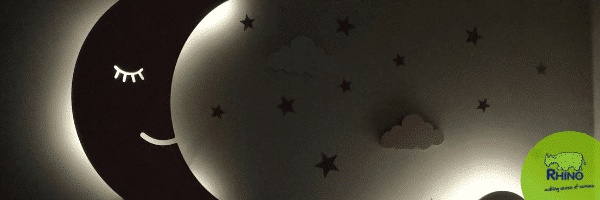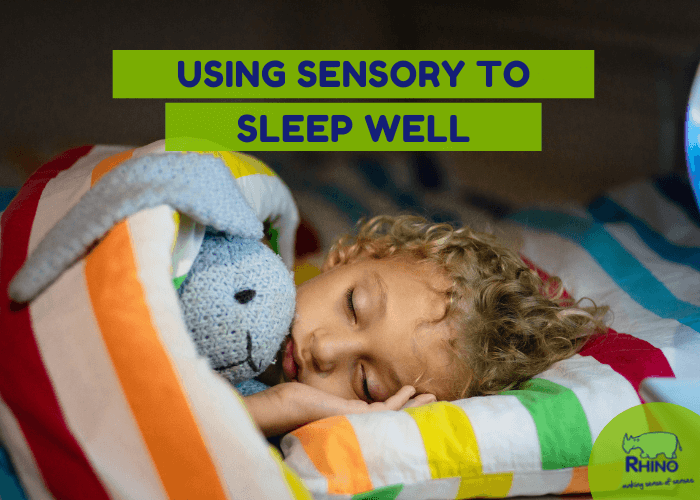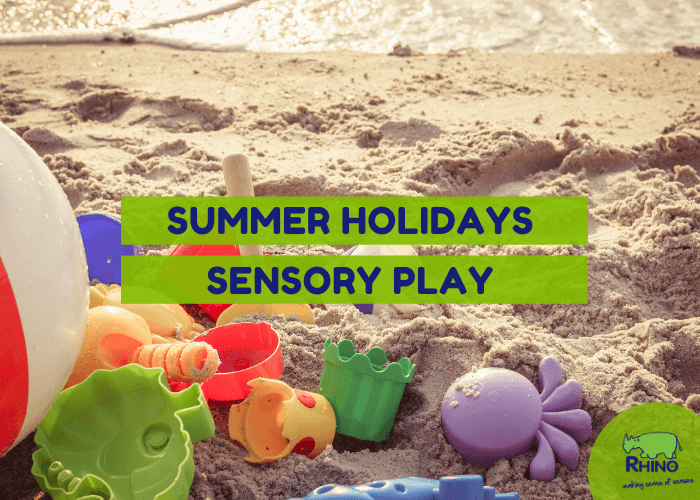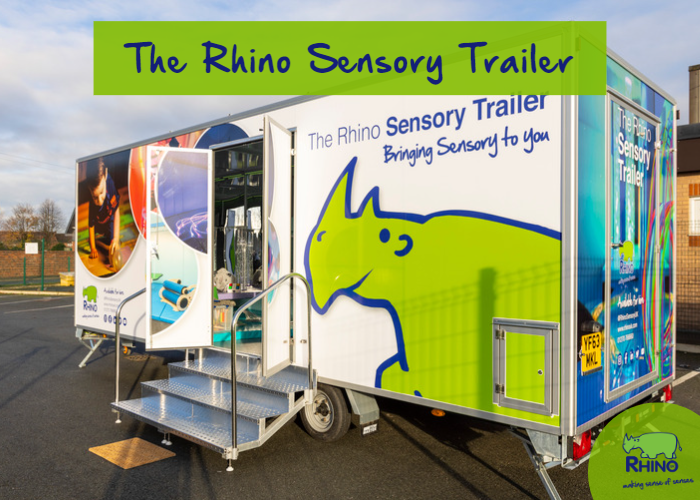Getting a good night’s sleep is one of the most important things we can do, as it gives us the energy we need to explore, discover and learn more about our senses.
Without enough sleep, we can feel tired, irritable and pretty grumpy. 30% of children have trouble with their sleep, and those with Sensory Processing Disorders or Autism are even more likely to struggle to get to sleep.
This is down to their sensory sensitivities. If you are naturally over-stimulated throughout the day, your brain is likely to be wide awake at night, processing the information that’s been collecting. Whereas if you’re under-stimulated, you’re likely to find it hard to sleep as your brain has been in a type of sleep mode all day, as it’s been missing the stimulation it’s been craving.
Whether you find that your brain is under or overstimulated, including sensory into your bedtime routine could be the sleepy magic trick that you’ve been searching for.
Our sensory experts have put together a resource guide filled with sensory sleep advice; they cover each of your sensory systems so that you can stimulate the ones you’re most sensitive to.
Sound & Sleep
During our first years, sound and sleep are almost synonymous because music (typically relaxing music) acts as a mental distraction that helps us calm down. So whether that’s listening to your favourite bedtime playlist, whale sounds, or white noise – it’s likely that listening to some form of music will help you get to sleep a little quicker.
Over-Stimulated: Try to minimise outside noises, whether that’s turning the telly off downstairs or trying not to run the washing machine overnight. Keeping the house as quiet as possible is a great way to avoid any unwanted sound stimulation. If you’re particularly sensitive to sounds, why not try a pair of noise-cancelling headphones? Not only can you use them to sleep in, but they’ll be a handy sensory resource for when you’re out and about.
Under-Stimulated: Ambient sounds, white noise and audiobooks are great bedroom distractions for users seeking sound stimulation. Studies have found that listening to music can help you sleep better and faster. Whether it’s a lullaby, a soft folky playlist or a David Walliams audiobook, see if sound can help you sleep better.
- Did you know that our Colour Changing Aroma Diffuser doubles as a sensory speaker? Mixing mood lighting, therapeutic aromas and soft sounds, you’re sure to have a great night’s sleep.

Light, Sight & Sleep
According to the Sleep Foundation, “light is the most important external factor affecting sleep.” This is because light affects your circadian rhythm – your bodies internal sleep clock. Bright light, especially blue light from screens, can halt melatonin production, keeping you awake.
Whilst light could affect how well you sleep; you might not be able to get to sleep without some light in your room. Mood lamps and night lights are popular bedroom accessories to help children and adults feel relaxed and calm before bed.
Over-Stimulated: Try to reduce the amount of light in your room. Blackout curtains or blinds are an effective way of blocking out sun or moonlight and transforming your bedroom into a dreamy dark den.
Under-Stimulated: Dark rooms aren’t for everyone, and that’s why we’ve got plenty of dreamy visual distractions in our projection and light effects collection. But for the purposes of this blog, we’re going to recommend our Ocean Wave Projector. It’s small, portable and can quickly create immersive sensory worlds to help you get into a dreamy mood. Focus and watch as the lighting effects cast undulating waves across your room for an endlessly calming visual distraction. What’s best is that the mood light doubles as a sensory speaker to play relaxing ocean sounds (or any other relaxing music of your choice.)
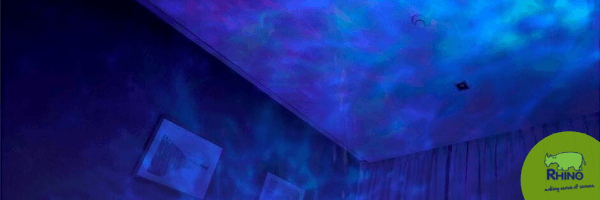
Smells & Sleep
Lavender, chamomile and rosemary are thought to help you dream deeper and sleep better, as they stimulate your olfactory systems and help your brain relax. It’s always best to use smells in moderation, as an overpowering smell, no matter how good it is, is likely to overstimulate your senses and make it harder for your brain to relax.
Under-Stimulated: Aromatherapy diffusers are a great way to subtly decorate your bedroom with calming scents, ready for a therapeutic night’s sleep. Our Aroma Stream Unit is an affordable and practical aromatherapy device that will quickly have your bedroom smelling like a sleepy sensory paradise.
If you’d like a more distracting aromatherapy experience, we’d highly recommend our MohDoh Sleep Pack. The pots of scented tactile putty stimulate your olfactory systems and tactile senses, and they also help build your fine motor skills. All in all, it’s a perfect fidget toy for capturing attention and helping minds relax.
Over-Stimulated: Avoid bringing anything smelly into your bedroom, and wash your sheets with a non-fragranced fabric conditioner for a neutral smelling bedroom environment.

Taste & Sleep
Taste isn’t necessarily linked to a good night’s sleep, but the foods you eat before bed can have an impact on how well you sleep. Nutritionists recommend that you avoid fatty or sugary treats before you go to bed as they increase your blood sugar levels, giving you a boost of energy that can make it harder for you to get to sleep. On the other hand, a cup of cherry juice can help your body produce melatonin, making you feel naturally sleepy.
Under-Stimulated: If you find that you’re seeking oral stimulation at night, a chewigem could be a great resource to calm your senses before bed. Wear it on your wrist or hold it in your hand and calm your nerves by chewing on the soft silicone.
Over-Stimulated: If you find that minty toothpaste is too stimulating before bed, why don’t you try a different flavoured alternative? Whether that’s softer spearmint, strawberry or even a non-flavoured toothpaste to help calm your oral senses and sleep soundly.
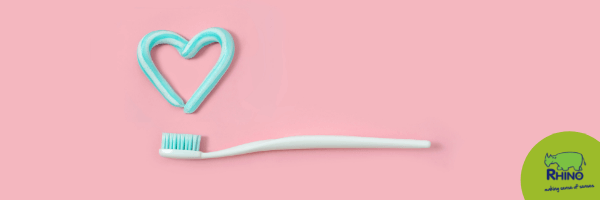
Touch, Your Tactile Senses & Sleep
Feeling comfortable before going to bed is one of the most important things we can do to try and have a good night’s sleep; and a lot of that has to do with how we physically feel, like if our pyjamas are too tight, or if we can’t find a cosy spot on our mattress. Luckily there are lots of things that you can do to improve your tactile experience before bed.
Under-Stimulated: If you find that you’re a restless sleeper and spend a lot of time tossing and turning in bed, you’re likely seeking tactile stimulation, so why don’t you try a Weighted Blanket? Weighted Blankets offer a comforting pressure that situates your body in space, stimulating your tactile and proprioceptive systems and helping you to feel calm and relaxed. We have lots of weighted blanket options for you to find the right size, weight, and shape for your needs.
Over-Stimulated: If you find that your tactile senses are particularly sensitive, we’d recommend going to sleep in loose-fitting clothing, using smooth fine cotton sheets, or trying to sleep without a duvet to try and avoid any extra tactile stimulation.

Find Out More
Understanding your sensory needs is an important step in improving your sleep hygiene and sleeping well. If you’d like to find out more about creating a relaxing and therapeutic bedroom environment, then get in touch with a member of our sensory team; they’ll be able to recommend the best sensory products and resources to match your sensory needs and to help you get a great night’s sleep.
You can also get in touch with our design team about our Sensory Bedroom design packages – where we can transform your bedroom into a dreamy sensory paradise.
If you’d like to read more sensory blogs and articles, make sure you join the herd and sign up for our monthly sensory newsletters.
